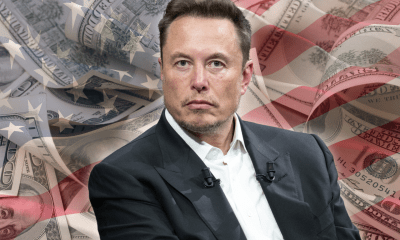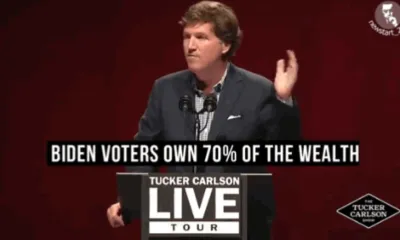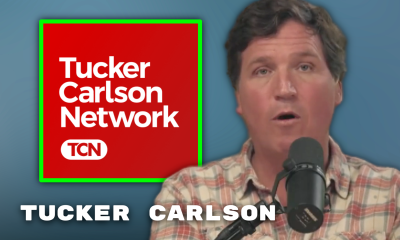Featured
Elon Musk Reveals Who He Is NOT Voting For
From meetings at Mar A Lago, to comments after the State of the Union. Musk looks secure in his decision.

Introduction
In the aftermath of Joe Biden’s latest State of the Union address, notable reactions emerged from various quarters, highlighting the speech’s impact and the political divisions it illuminated. Among the most intriguing responses was that of Elon Musk, the tech magnate known for his ventures into space, electric cars, and social media. On X.com, Musk voiced his agreement with a post advocating for a new president and praised Tucker Carlson’s critical analysis of Biden’s presidency. This article delves into Musk’s remarks, their implications, and what they signal about the intertwining of tech industry leadership and political discourse.
Elon Musk’s Comments Detailed
Elon Musk’s engagement with political commentary on X.com sheds light on his perspectives regarding the current U.S. administration. Agreeing with a post that called for new presidential leadership, Musk’s endorsement aligns with a growing sentiment among certain segments of the American populace. Moreover, his nod to Tucker Carlson’s critique of Biden’s tenure underscores Musk’s consideration of conservative viewpoints in assessing the political landscape. These comments provide a glimpse into Musk’s political leanings, suggesting a critique of the Biden administration’s policies and performance.
Implications of Musk’s Political Stance
Musk’s defacto support for a shift in presidential leadership, coupled with his acknowledgment of Tucker Carlson’s analysis, indicates a political stance that leans away from the current administration. This inclination toward conservative criticism of Biden’s presidency reveals Musk’s potential influence on political discourse, especially considering his substantial social media following and status as a tech industry leader. The impact of Musk’s statements extends beyond personal opinion, potentially shaping public discourse and influencing the political sentiments of a broad audience.
The Tech Industry and Political Discourse
The intersection of technology and politics has grown increasingly prominent, with figures like Elon Musk playing pivotal roles in shaping political dialogue. Musk’s comments reflect a broader trend of tech moguls engaging in political debates, influencing public opinion through their platforms and statements. The influence of social media, particularly platforms owned or influenced by tech leaders, underscores the significant impact these individuals can have on political narratives and election outcomes.
Exploring Musk’s Decision to Not Fund Campaigns
Elon Musk’s political engagement took a nuanced turn with his declaration of not funding either presidential campaign. Following a meeting with Trump at Mar-A-Lago, Musk’s statement on X.com, “Just to be super clear, I am not donating money to either candidate for US President,” introduces a complex layer to his political interactions. This decision might stem from a desire to maintain public neutrality, particularly crucial given his ownership of X.com and the platform’s influence on public discourse. Musk’s stance reflects a strategic balance, aiming to navigate the politically charged environment without overtly aligning his business interests with any political figure or party. This approach suggests an awareness of the potential repercussions that political endorsements or donations could have on his companies, especially in an era where corporate political affiliations are closely scrutinized.
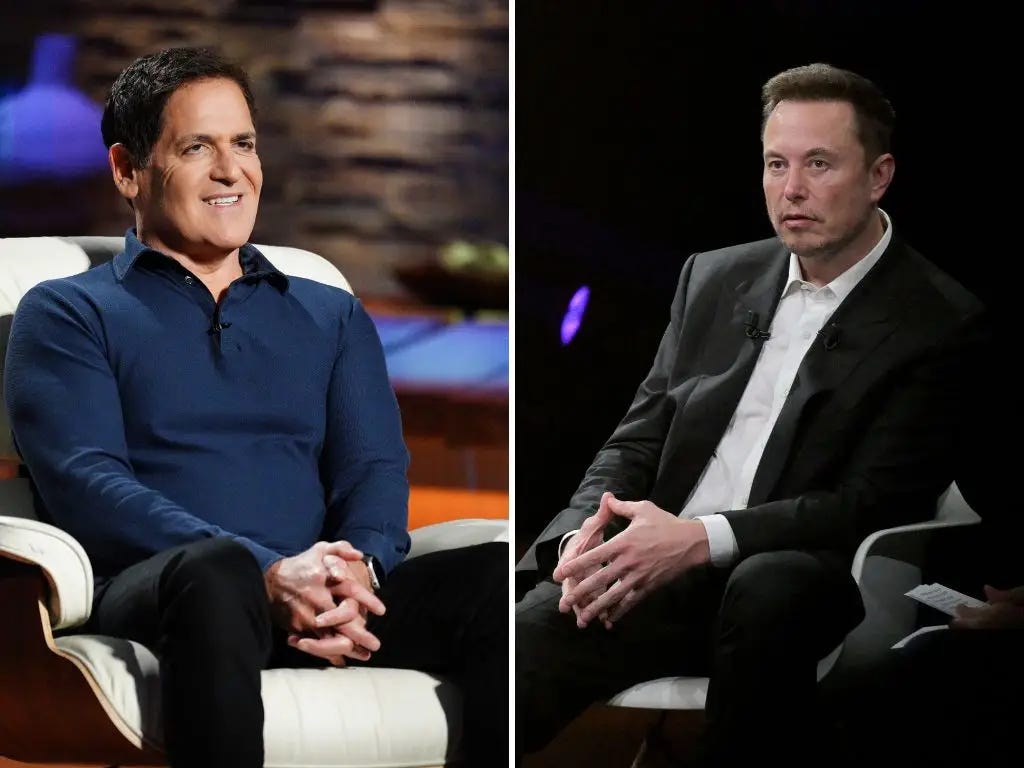
Implications of Musk’s Political Stance and Actions
Despite Musk’s insistence on not financially supporting presidential candidates, his interactions and public statements hint at a leaning towards Trump. This perceived support raises questions about the nature of neutrality in the context of influential public figures. Musk’s approach—engaging in political commentary while abstaining from financial contributions—highlights the multifaceted ways in which individuals can influence political discourse. For Musk, the implications of his stance are significant, affecting his followers’ perceptions, the tech industry’s political dynamics, and the broader societal understanding of neutrality and influence. Musk’s actions underscore the challenges and responsibilities facing tech moguls in navigating the intersection of business leadership and political engagement.
Conclusion
In reassessing Elon Musk’s foray into the political dialogue surrounding the aftermath of Joe Biden’s State of the Union address, it’s evident that while Musk professes a desire to remain publicly neutral, his actions and statements suggest a different story. Despite his assertion of not funding any presidential campaigns, his recent engagements, notably his meeting with Trump and pointed criticisms directed at the Biden administration, illuminate a leaning towards conservative viewpoints, perhaps indicating a preference for Trump’s leadership.
Musk’s strategic public stance of neutrality, especially his decision to abstain from political donations, might well be interpreted as a savvy business maneuver designed to shield his ventures, like X.com, from the polarizing effects of America’s current political climate. However, this ostensible neutrality does not fully mask the implications of his actions, which, to a discerning observer, seem to edge closer to a tacit endorsement of Trump. This nuanced position Musk adopts is reflective of the complex role tech moguls play in an era where political affiliations can significantly impact business operations and consumer relationships.
Moreover, Musk’s significant influence, derived from his success in the tech industry and his control over a major social media platform, positions him as a pivotal figure in shaping public discourse. His critiques of Biden and nods to conservative commentators amplify a narrative that resonates with many Americans, further complicating the notion of his neutrality.
In conclusion, while Elon Musk may publicly claim a neutral stance in the political arena, a closer examination of his actions and comments reveals a leaning towards conservative principles and, by extension, a subtle support for Trump. This discrepancy between Musk’s public declarations and his political engagements highlights the intricate dance of influence and neutrality that figures of his stature navigate, offering a poignant example of how tech leaders can sway political discourse subtly yet significantly. In an age where the lines between technology, business, and politics are increasingly blurred, Musk’s approach exemplifies the challenges and strategies of maintaining a business empire amidst America’s charged political landscape.
-
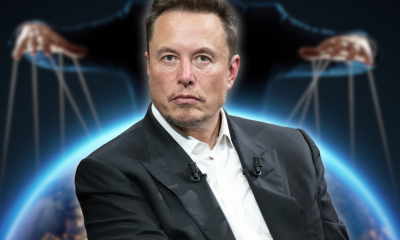
 Featured2 days ago
Featured2 days agoElon Musk Drops Unforgettable Take on Who’s Running the Shadow Government
-

 News3 days ago
News3 days agoGreat News: Americans’ Trust in Mass Media Hits All-Time Low
-

 News3 days ago
News3 days agoBUSTED: Meta Insider Reveals How Company Is Quietly Rigging the Election
-
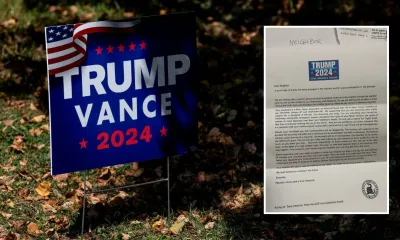
 News1 day ago
News1 day agoALARMING: Trump Supporters in Pennsylvania Targeted with Threatening Letters

